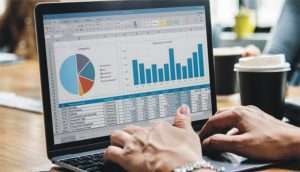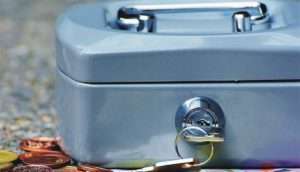When it comes to paying your tax bill, the practicalities of actually paying it (bank transfer, cheque, etc.) might be less worrying than the thought of handing over the cash! However, it still helps to look over the details: you could be fined if you miss a payment deadline due to a technicality (not realising how long a cheque might take to clear, for instance).
In this blog, we’ll review the most common methods of payment and how making payments works in practice.
When Are Tax Bill Payments Due?
Before thinking about how you’ll make payment, it’s crucial to get a few important deadlines firmly circled in your diary:
- 31st October and 31st January: these are the deadlines for filing paper returns and electronic returns respectively. 31st January is the final deadline for settling your tax bill for the previous tax year (which typically runs between 6th April – 5th April, year to year).
- 31st July: if you are required to make payments on account (advance payments that spread your tax bill out through the year), you will need to make two payments a year – one on the 31st January and a second on the 31st July.
How to Pay Your Tax Bill
First of all, you may need to know which HMRC account to make payment to. This information should be included on your tax bill. Next, you’ll need your 11-character payment reference to hand: this comprises your UTR (unique taxpayer reference) followed by the letter K. If you’re unsure, check your HMRC online account or paying-in slip.
Ways to pay your tax bill:
- Bank transfer. An easy way to settle your tax bill, which you can do from your smartphone, on a desktop, or through telephone banking. Payments made by Faster Payments or CHAPS usually reach HMRC on the same or next working day; BACS payments can take up to three working days to clear.
- Debit card. The simplest way to do this is via the Gov.uk website (HMRC no longer use the BILL PAY system). Please note that as of the 13th January personal credit cards will no longer be accepted. Payments made via debit card will be accepted on the date they were made (rather than the date the funds were actually received by HMRC).
- Bank or building society. Provided that you still receive HMRC paper statements and use the paying-slips sent by HMRC, you are permitted to pay HMRC via cheque at your bank or building society. Cheques should be made out to ‘HM REVENUE AND CUSTOMS ONLY’ followed by your UTR. Payments will be accepted on the date they were made, not the date the funds were received by HMRC (as long as payment was made on a working weekday).
- Direct debit. It is possible to set up a direct debit to HMRC in order to make single payments on the specified deadline dates (note that you’ll need to set up a new one each time, and that payment may be delayed if the wrong UTR is used). Direct debit payments can take up to five working days to clear. .
- Through your tax code. Self-assessment tax can be collected automatically through your PAYE tax code if the following conditions are met: if you owe less than £3,000; if you submitted your online return by 30th December or your paper return by the 31st October deadline; if you already pay tax through PAYE. You will not be eligible in the following instances: if you don’t earn enough PAYE income; if you have already paid over 50 of your PAYE income tax; or if you’d end up paying double the amount of tax.
If You Can’t Pay Your Tax Bill…
First of all: don’t panic. These things happen, and it’s in HMRC’s best interests to help you find a solution (after all, they want to be able to collect tax monies with as little delay as possible). You should contact HMRC and explain why you can’t pay the bill – and do this as soon as you feasibly can. If you go past the deadline, you will have to pay interest; if HMRC are notified in advance, however, there’s a chance that they may extend the deadline or allow you to make payments in instalments.
When you contact HMRC, be sure to have your UTR to hand; also be prepared to explain why you can’t pay the bill and how much you can afford to pay.
Note that HMRC’s decision is final: you can’t appeal against it, so it’s worth ensuring you have all the information ready to discuss with them so that your case is as persuasive as possible.
If you’re confused about how to pay your tax bill or are concerned that you might not be able to satisfy an impending liability, contact IBISS & CO’s qualified tax advisers today. We can manage your tax affairs for you, making the process of filing and paying for a tax return as painless as possible, and helping you save money in the long term.




